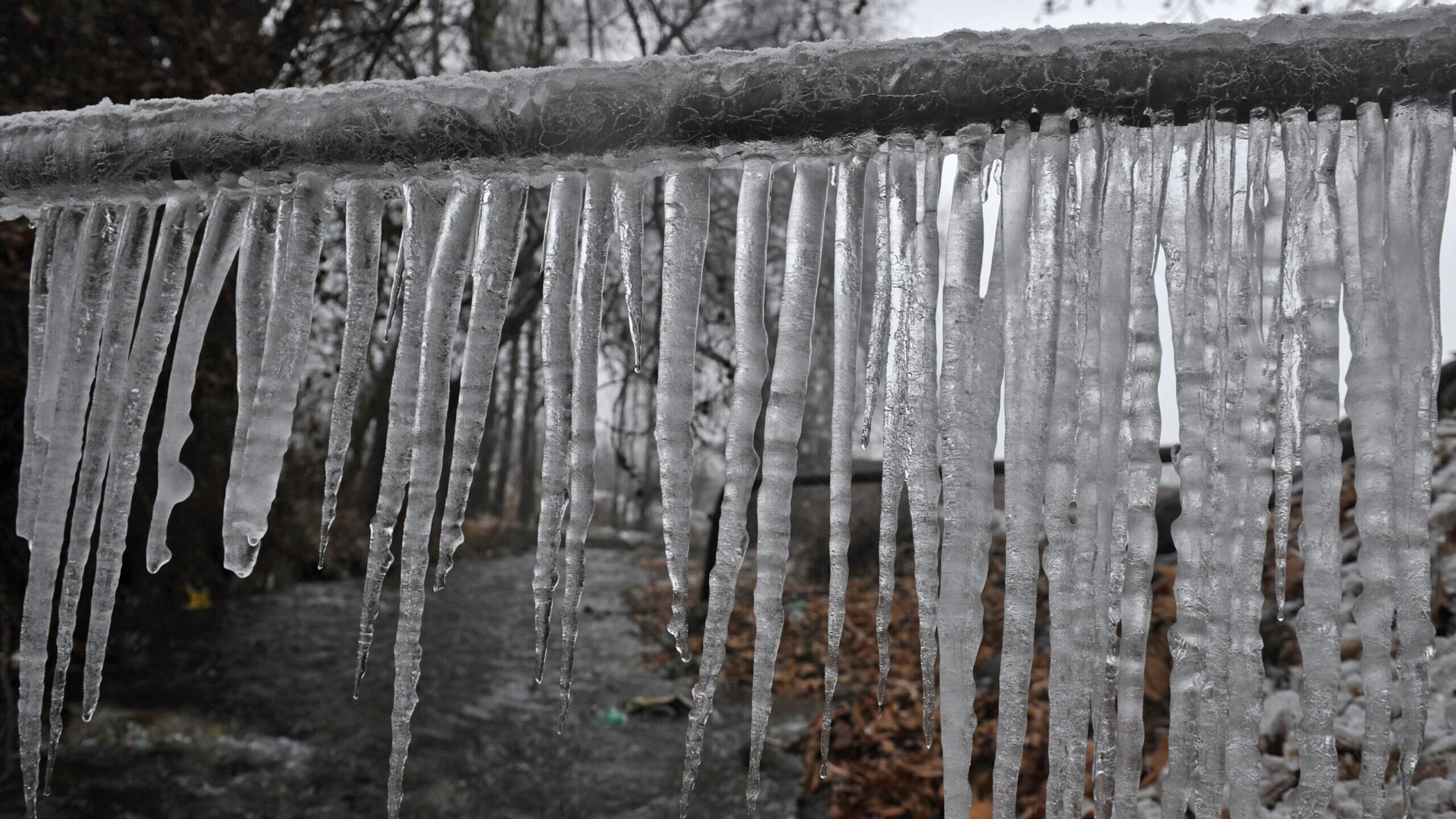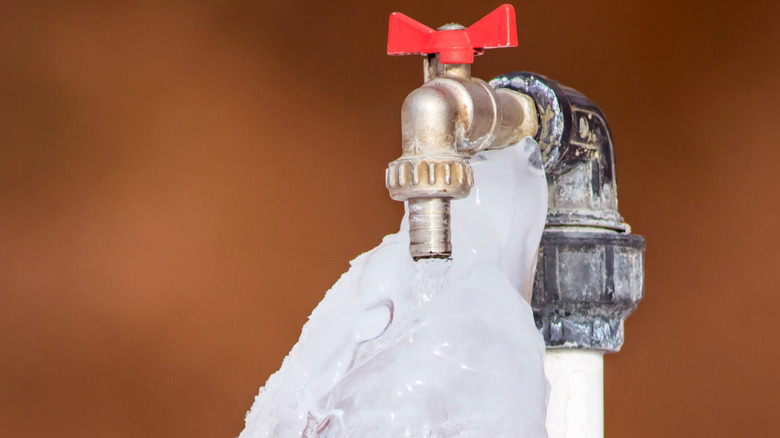Ways to Defend Plumbing System from Cold Weather: Key Advice
Ways to Defend Plumbing System from Cold Weather: Key Advice
Blog Article
What are your beliefs on How to Prevent Your Pipes From Freezing?

Cold weather can ruin your plumbing, particularly by freezing pipelines. Right here's just how to stop it from taking place and what to do if it does.
Introduction
As temperatures drop, the risk of frozen pipes increases, possibly resulting in costly repair work and water damages. Recognizing how to prevent icy pipelines is important for house owners in cool environments.
Prevention Tips
Insulating vulnerable pipelines
Wrap pipes in insulation sleeves or utilize warm tape to secure them from freezing temperature levels. Concentrate on pipes in unheated or external locations of the home.
Heating strategies
Maintain interior spaces effectively heated, especially locations with plumbing. Open closet doors to enable warm air to distribute around pipelines under sinks.
Just how to determine icy pipes
Seek lowered water flow from faucets, uncommon smells or noises from pipelines, and noticeable frost on revealed pipelines.
Long-Term Solutions
Structural adjustments
Consider rerouting pipelines far from outside wall surfaces or unheated areas. Include additional insulation to attic rooms, basements, and crawl spaces.
Updating insulation
Buy top notch insulation for pipelines, attic rooms, and wall surfaces. Correct insulation helps maintain regular temperatures and decreases the risk of frozen pipelines.
Safeguarding Exterior Pipes
Garden hose pipes and outdoor taps
Detach and drain yard hose pipes prior to winter. Install frost-proof spigots or cover outdoor taps with insulated caps.
Understanding Icy Pipelines
What creates pipes to freeze?
Pipes freeze when revealed to temperature levels listed below 32 ° F (0 ° C) for expanded durations. As water inside the pipes ices up, it expands, taxing the pipe wall surfaces and potentially causing them to break.
Threats and damages
Frozen pipes can bring about water disruptions, property damages, and expensive repair services. Ruptured pipelines can flooding homes and trigger substantial architectural damage.
Indicators of Frozen Pipes
Determining icy pipes early can avoid them from breaking.
What to Do If Your Pipes Freeze
Immediate actions to take
If you presume frozen pipelines, keep faucets open up to alleviate pressure as the ice thaws. Use a hairdryer or towels taken in warm water to thaw pipes slowly.
Final thought
Preventing icy pipes needs positive procedures and quick responses. By comprehending the reasons, indications, and safety nets, homeowners can shield their plumbing throughout winter.
Helpful Tips to Prevent Frozen Pipes this Winter
UNDERSTANDING THE BASICS: WHY PIPES FREEZE AND WHY IT’S A PROBLEM
Water freezing inside pipes is common during the winter months, but understanding why pipes freeze, and the potential problems it can cause is crucial in preventing such incidents. This section will delve into the basics of why pipes freeze and the associated problems that may arise.
THE SCIENCE BEHIND FROZEN PIPES
When water reaches freezing temperatures, it undergoes a physical transformation and solidifies into ice. This expansion of water as it freezes is the primary reason pipes can burst. As the water inside the pipe freezes, it expands, creating immense pressure on the walls. If the pressure becomes too great, the pipe can crack or rupture, leading to leaks and water damage.
FACTORS THAT CONTRIBUTE TO PIPE FREEZING
Low Temperatures: Extremely cold weather, especially below freezing, increases the risk of pipes freezing. Uninsulated or Poorly Insulated Pipes: Pipes located in unheated areas, such as basements, crawl spaces, or attics, are more prone to freezing. Insufficient insulation or lack of insulation altogether exacerbates the problem. Exterior Wall Exposure: Pipes running along exterior walls are susceptible to freezing as they encounter colder temperatures outside. Lack of Heating or Temperature Regulation: Inadequate heating or inconsistent temperature control in your home can contribute to frozen pipes. PROBLEMS CAUSED BY FROZEN PIPES
- Pipe Bursting: As mentioned earlier, the expansion of water as it freezes can cause pipes to burst, resulting in significant water damage.
- Water Damage: When pipes burst, it can lead to flooding and water damage to your property, including walls, ceilings, flooring, and personal belongings.
- Structural Damage: Prolonged exposure to water from burst pipes can compromise the structural integrity of your home, leading to costly repairs.
- Mold and Mildew Growth: Excess moisture from water damage can create a favorable environment for mold and mildew growth, posing health risks to occupants.
- Disrupted Water Supply: Frozen pipes can also result in a complete or partial loss of water supply until the issue is resolved.
WHY CERTAIN PIPES ARE MORE PRONE TO FREEZING
- Location: Pipes located in unheated or poorly insulated areas, such as basements, crawl spaces, attics, or exterior walls, are at higher risk of freezing.
- Exterior Pipes: Outdoor pipes, such as those used for irrigation or exposed plumbing, are particularly vulnerable to freezing as they are directly exposed to the elements.
- Supply Lines: Pipes that carry water from the main water supply into your home, including the main water line, are critical to protect as freezing in these lines can affect your entire plumbing system.
- Underground Pipes: Pipes buried underground, such as those connected to sprinkler systems or outdoor faucets, can be susceptible to freezing if not properly insulated.
https://busybusy.com/blog/helpful-tips-to-prevent-frozen-pipes-this-winter/

We hope you liked our piece about Preventing and dealing with frozen pipes. Thanks a lot for spending some time to browse our article. Are you aware of another individual who is sincerely interested in the subject? Feel free to share it. Thanks for being here. Please come by our site back soon.
Call Today Report this page